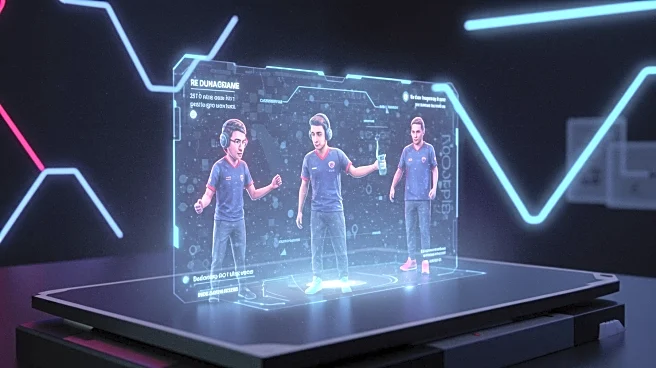What's Happening?
Nexon is under fire for its marketing campaign promoting the game 'The First Descendant' using AI-generated streamers. These digital clones mimic real streamers but exhibit unnatural speech and expressions, leading to community backlash. The campaign has sparked ethical concerns about the authenticity of AI influencers in game promotion. The ads, which appear on platforms like TikTok, have been criticized for their inauthenticity and resemblance to real-world creators, raising questions about the use of AI in advertising.
Why It's Important?
The controversy surrounding Nexon's use of AI-generated streamers highlights the ethical and authenticity challenges in digital marketing. This approach risks alienating audiences who value genuine interactions and could impact the trust between game developers and their communities. The backlash may prompt industry-wide discussions on the ethical use of AI in marketing, influencing future advertising strategies. Real-world creators might feel threatened by AI replacements, potentially affecting their livelihoods and the dynamics of influencer marketing.
What's Next?
Nexon may need to reassess its marketing strategies and address community concerns to restore trust. The gaming industry could see increased scrutiny over the use of AI in promotions, leading to potential regulatory guidelines. Developers might explore hybrid approaches, combining AI with real influencers to balance innovation with authenticity. The backlash could drive more transparent communication between companies and their audiences.
Beyond the Headlines
The use of AI-generated content raises broader ethical questions about the role of technology in human representation. This development could influence cultural perceptions of authenticity and the value of human creativity in digital spaces. Long-term, it may affect how audiences engage with digital content and the expectations of transparency in marketing.











